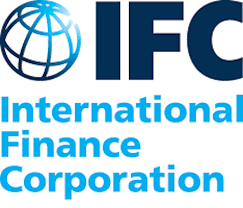The International Finance Corporation, IFC, a member of the World Bank Group, has sought for reforms in key sectors of the Nigerian economy to boost local and foreign investments as well as generate employment opportunities.It made this known in a new report, the Nigeria “Country Private Sector Diagnostic” (CPSD), that was launched recently. The CPSD report, which was launched as part of the corporation’s economic recovery efforts post-COVID-19, suggested strategies that would drive opportunities and profitable investments to the private sector.

The IFC report identified agribusiness, manufacturing, and digital entrepreneurship, amongst others, as the country’s bailout option post-COVID-19.
It noted that in addition to market access to other member countries of the Economic Community of West African States (ECOWAS), private investors stand to gain hugely from Nigeria’s extensive agricultural and mineral resources, young and entrepreneurial labour force and its strategic position in Africa.
The corporation, however, urged the Federal government to address the deficit in infrastructure and investment policies to make the sector more attractive.
Speaking further, IFC Country Manager for Nigeria, Eme Essien Lore, said, “Nigeria’s private sector is among the largest in Africa and plays a critical role providing goods, services, and quality jobs to the country’s growing population. Addressing the challenges holding back Nigeria’s private sector—challenges deepened by the COVID-19 pandemic—will be critical to the country’s goal of lifting 100 million Nigerians out of poverty by 2030. “Through the CPSD, IFC, and the World Bank have identified policy actions and interventions that can help unlock investment and jobs.”
According to the report, targeted investments in agribusiness could directly benefit Nigeria’s poorest households and help improve food security.
“Reforms in manufacturing could support and facilitate investments in the sector, boost quality local production and exports. The benefits to Nigeria of fully harnessing the digital economy are significant and would likely accelerate the pace and inclusiveness of economic activity in the country.
Also speaking, World Bank Country Director for Nigeria, Shubham Chaudhuri, said, “Nigeria’s Private Sector Diagnostic provides a road map to support the government in undertaking reforms that will help increase private sector investment and diversify the country’s oil-dependent economy.” IFC and the World Bank have also published a COVID-19 Rapid Assessment alongside the Nigeria CPSD. The rapid assessment provides insights for stakeholders to accelerate Nigeria’s recovery from the impact of the pandemic.

